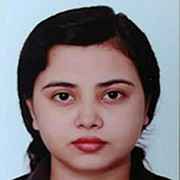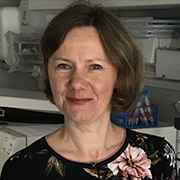Sie befinden sich hier
Inhalt

Graduate: Saheli Saha
My work is the use of transfected 3D cell cultures as an efficient platform for drug testing enabling to reduce number of animal tests. My research aims to enhance transfection efficiency in 3D spheroid cultures, analyze the dynamics of cargo in these environments, and compare the effects of gene silencing and drug inhibition. The project investigates endocytosis in 3D cultures, specifically, examining cargo entry and distribution, and endosomal release in relation to the morphological features of endo-lysosomal pathways. The ultimate goal is to use this knowledge for improving the targeted modification

Supervisor: Dr. Vytaute Starkuviene-Erfle
vytaute.starkuviene@bioquant.uni-heidelberg.de
Bioquant, Faculty of Bioscience, Heidelberg University
www.bioquant.uni-heidelberg.de/groups
